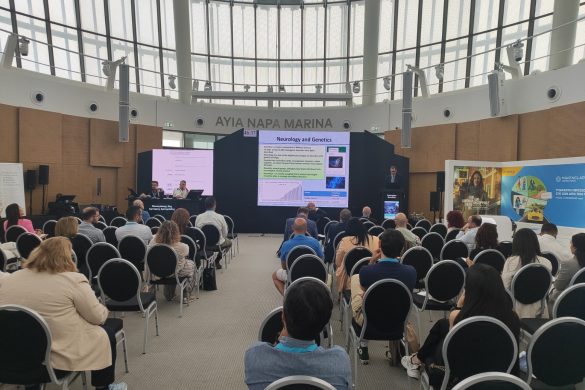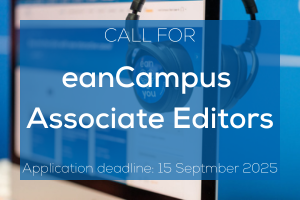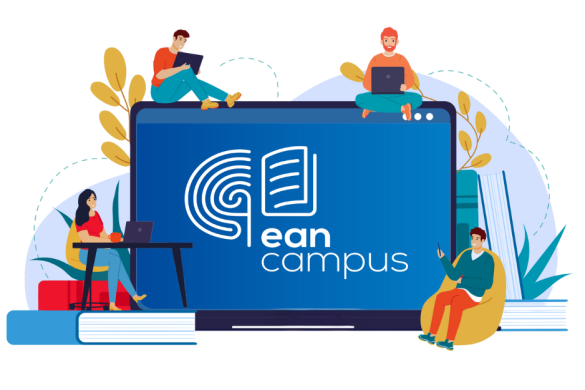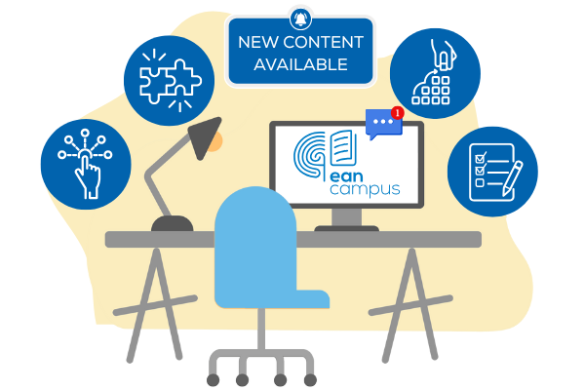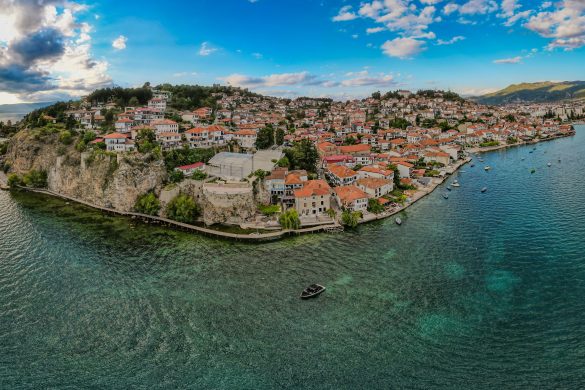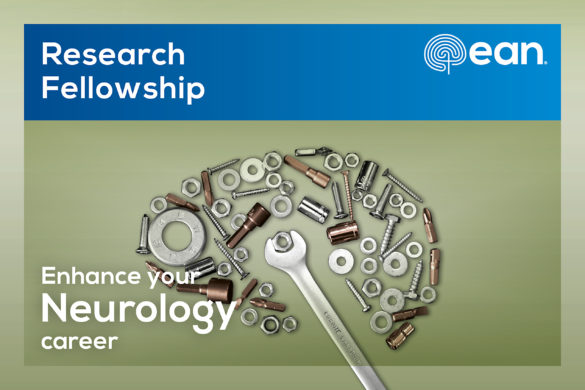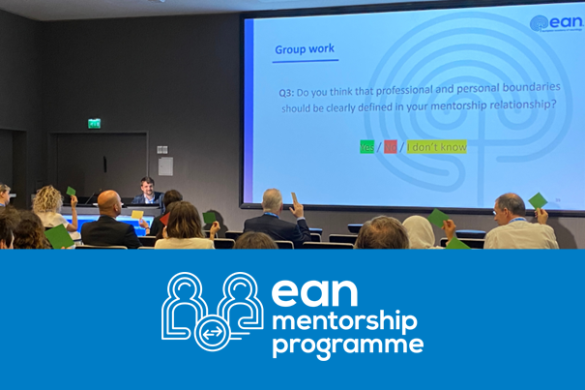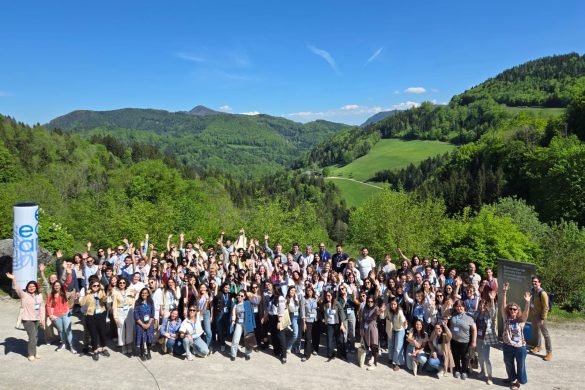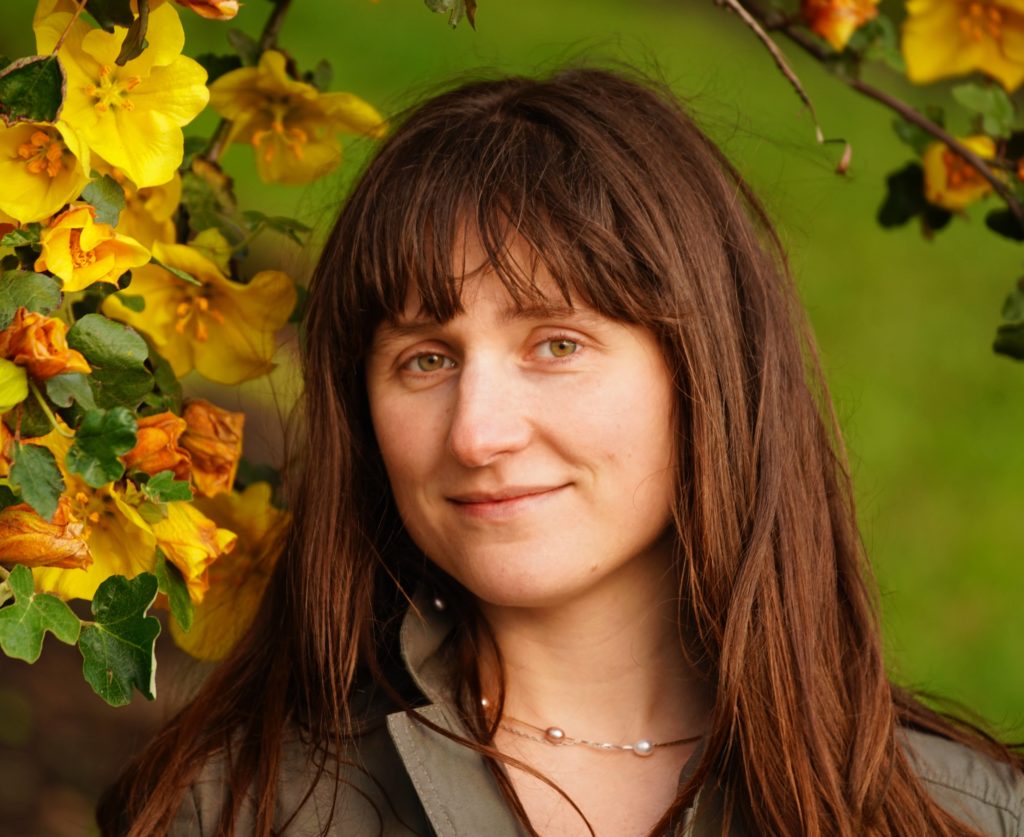
Fellow: Anna Gamaleya
Term of the Fellowship: 14.10.2019 – 09.12.2019
Hosting department: Department of Psychiatry, Neurology and Neurological rehabilitation, Centre Hospitalier Universitaire de Grenoble, France
Supervisor: Prof. Elena Moro
During my Clinical Fellowship, I had a chance to spend almost two months in the Movement Disorders Unit in Department of Psychiatry and Neurology, Centre Hospitalier Universitaire (CHU) de Grenoble, Grenoble Alpes University.
The Neurology Department of CHU in Grenoble is one of the leading centres in Europe in the field of movement disorders and especially in management of patients undergoing deep brain stimulation. It was there that the first modern DBS procedures were started more than 30 years ago with Alim Louis Benabid as a neurosurgeon and Pierre Pollak as a neurologist. Prof. Elena Moro, who is currently heading the Movement Disorders Unit in Grenoble, is one of the most experienced neurologists and opinion leaders in this field with profound international expertise. That is why, for me as a movement disorder neurologist working in the neurosurgical centre and specialising in functional neurosurgical procedures, it was a great honour to have a clinical fellowship in such a prestigious neurological department.
My activities during the Clinical Fellowship appeared to be very rich and relevant to my usual practice. Every day I participated in consultations of patients in the movement disorder outpatient clinic. I am very thankful to my supervisor Prof. Elena Moro, Dr. Anna Castrioto, Dr. Valérie Fraix, Dr. Sara Meoni, and Dr. Marie Fournier for their friendliness, patience, and readiness to share their experiences and clinical tips. I saw many patients with different movement disorders, including some rare cases I had never observed previously. Two times a week I attended clinical grand rounds where we discussed the management of inpatients. I had an opportunity to look through the medical documentation of the patients to trace the particular routes of diagnostics, treatment, and follow-up. I saw a lot of patients with implanted DBS devices. I had an opportunity to get to know the local principles of evaluation of candidates for DBS, preoperative complex assessment, and patient support in postoperative follow-up. I took part in the neurological assessment and microelectrode recording in the operating room in patients with Parkinson’s disease, essential tremor and dystonia undergoing DBS surgery. Together with the neurologists of the department, I followed the patients after the surgery, participated in the primary programming of DBS devices and adjustment of the parameters at follow-up. I also saw many PD patients with apomorphine pumps and became acquainted with the management of these devices, which are only beginning to be used in Russia. I took part in the regular clinic for botulinum toxin therapy for patients with dystonia and learned a lot about ultrasound guided injections. I attended weekly neurological meetings with lectures and seminars devoted to different topics on movement disorders, neurodegeneration, epilepsy, neuroimaging, and neurophysiology, as well as a discussion of the most interesting patient cases. Besides the clinical practice, I used the time to contribute to a research project on specifics of botulinum toxin usage in dystonia patients with DBS, helping to collect the data.
I became acquainted with the organisation of neurological care in France, logistics and management of patients with movement disorders, and explored the organization and functioning of the movement disorder centre. The broad system of neurological rehabilitation and the involvement of nursing staff for patient education and supervision appeared to be especially interesting. As a bonus, I took part in the extensive educational programme organised by the Grenoble Parkinson’s Centre for excellence for specialists of nursing facilities for elderly people.
Everyday work in the French environment helped me to get to know the rich French culture better. I significantly improved my French knowledge and got motivated to continue to master this beautiful language.
Apart from the busy days in the clinic, I noted the incredible natural beauty of the Grenoble region. The city is surrounded by gorgeous mountains and I used my free time at weekends to explore the amazing rocky landscapes. Moreover, the city itself moves one to become more sporty and stick to a healthy lifestyle. In common with many Grenoblers, I got into a nice habit of running up and down the Bastille hill either before or after the working day. The city is also rich in museums, which host a variety of exhibitions in art, French history, local prominent events and personalities.
I feel sincere gratitude and deep appreciation for all these experiences that enriched my professional skills and served my personal growth.
To conclude, I am very happy to have had the opportunity of a Fellowship in the Department of Neurology in Grenoble CHU and I am starting to use the expertise gained in my clinical practice. I consider that it will help me a lot in optimising and improving neurological services and in the management of patients with movement disorders in my Centre. I am able to better diagnose and manage patients with different movement disorders, and better dissect difficult and troublesome cases. I know how to optimise the programming of DBS devices am comfortable with patient management after functional surgical procedures, and I have more expertise in troubleshooting difficult DBS cases. I know more about the work of neurologists in the neurosurgical operating room. I am able to better analyse the intraoperative microelectrode recording of neuronal activity of basal ganglia and to perform intraoperative patient assessments. I have more knowledge of approaches to botulinum toxin therapy especially concerning ultrasound guidance. I know more about the state of current clinical studies in movement disorders and I can better inform my patients. I know more about the manner of organisation and functioning of a neurological movement disorder department and I can apply this knowledge in my Centre, where we are planning to develop a movement disorder unit. I am very inspired by the work of my mentor Prof. Elena Moro: her educational activities, clinical way of thinking, scientific creativity, passion for neurology, and whole movement disorder team. The Fellowship was an eye-opening experience. Now I can draw conclusions from the work of the Grenoble team, implicate the best things into my own practice and widely share this expertise with my colleagues.
The idea of Clinical Fellowship Programme is optimal for a brief insight into the work of a target neurological department. Although it is not sufficient for profound research activity, it is possible to continue the collaboration afterwards in the future.
I would like to thank kindly Prof. Elena Moro and all the neurologists and staff of the Movement Disorders Unit of the Neurological Department in CHU Grenoble for the hospitality and for sharing their knowledge and expertise. I really appreciated the opportunity to visit a prominent European neurological department and to acquire the valuable experiences which the European Academy of Neurology gave me. With that, I would like to sincerely thank the team of the EAN Education Committee with Magda Dohnalová who are working hard to make these Fellowships possible. For the future, I only wish that all willing RRFS EAN members could have a chance to visit the department of their particular interest and to broaden their knowledge and insights.
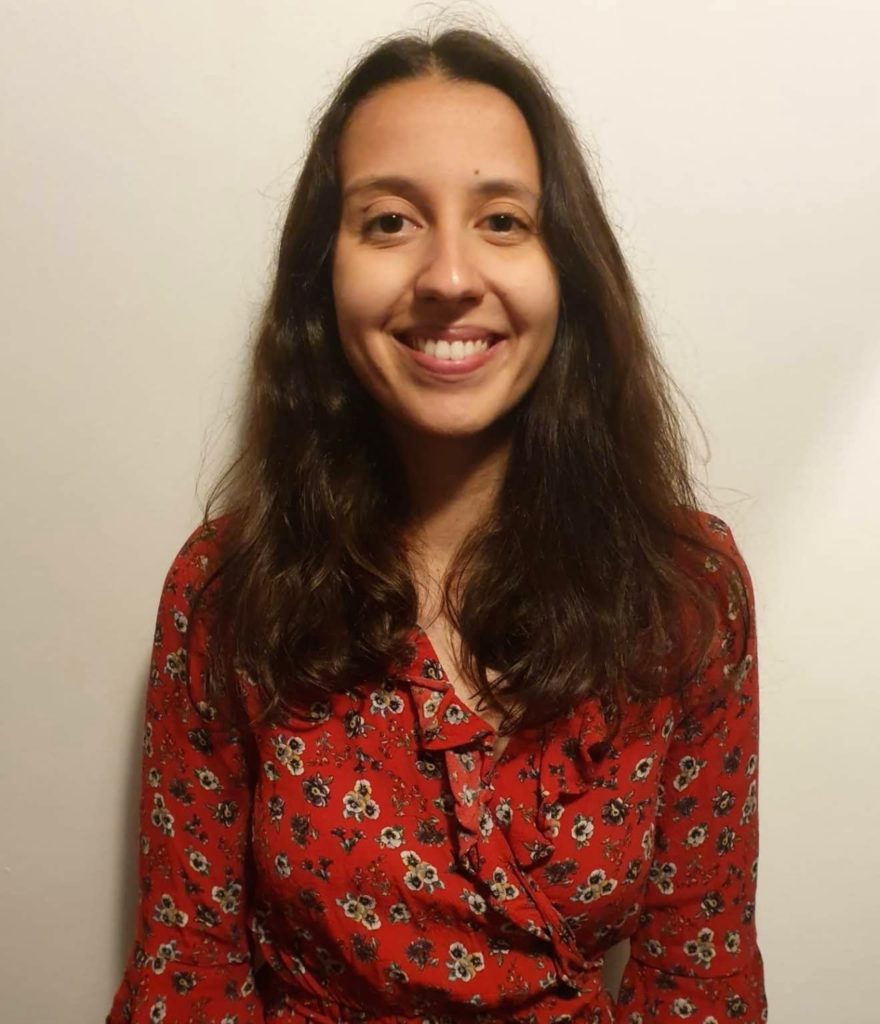
Bruna Meira
Duration of Fellowship: 2nd January until 13th March 2020 (10 weeks-stay)
Hosting department: Movement Disorders section – Neurology Department, Hôpital Pitié-Sapêtrière, Paris, France
Supervisor: Prof. Marie Vidailhet
I was given the opportunity to enrich my clinical experience in the field of movement disorders under the guidance of Prof. Marie Vidailhet. A warm welcome and introduction to all different activities was personally handled by Prof. Vidailhet. I was very well received by the whole team and quickly involved in weekly activities.
During my stay, my main aims were the following:
- general training in movement disorder consultations,
- improving my clinical skills in the evaluation of a patient with a suspected movement disorders, including differential diagnosis,
- training in botulinum toxin injections,
- focused training on advanced therapies (apomorphine pump), mainly with patients suffering from advanced PD,
- training in deep brain stimulator (DBS) programming, with patients suffering from PD or dystonia,
- collaboration in different scientific projects.
During this period, I attended the outpatient clinic and inpatient wards, where I had the opportunity to see a large diversity of patients, including genetic and sporadic Parkinson’s disease and other atypical Parkinsonian syndromes, hyperkinetic movement disorders such as tremor, genetic and sporadic dystonia and other related movement disorders. I was able to learn and to acquire professional skills to perform neurological examinations, analyse and interpret different movement disorders (Parkinsonism, dyskinesias, dystonia, tremor, chorea, myoclonus, tics, stereotypies), as well as abnormal eye movements across a wide range of differential diagnoses. I actively participated in the examination and discussion of patients. I improved my clinical history questionnaire and made it more structured, focused and suitable for patients with movement disorders. I learned various neurological examination components to make it more precise and specialised for movement disorders. I got to see a spectrum of abnormal neurological examination findings in patients with movement disorders. I also saw and learned about some very interesting and rare movement disorder cases, mainly involving a genetic background.
At the same time, I performed, under supervision, my training in botulinum toxin injections with ultrasound and EMG recordings. I reviewed the anatomy and action of the muscles and I learned about injection sites in different settings, such as cervical dystonia, hand dystonia, facial dystonia and more complex dystonic patients.
On the inpatient wards, I was able to see a large number of patients with Parkinson’s disease admitted to initiate treatment with subcutaneous infusion of apomorphine or for re-evaluation, allowing me to have a very complete training in this field. I also had the opportunity to follow some patients pre-DBS surgery and to practise and witness several useful adjustments in stimulation parameters and problem-solving strategies.
I have made enormous progress in the field of functional movement disorders and I have learned to implement several different treatment strategies, how to communicate in regard to the various disorders, techniques such as transcranial magnetic stimulation (TMS) and alternative treatment options such as hypnosis.
Every Tuesday and Thursday, there was a movement disorders meeting and a general neurology meeting, respectively, where different clinical cases were discussed and interesting themes reviewed.
Lastly, I collaborated in different scientific projects: presentation at the French movement disorders meeting (Club des Mouvements Anormaux) and in a study of a cohort of patients undergoing apomorphine treatment, assessing its impact on quality of life, efficacy and long-term tolerance.
It was also valuable for me to get to know several other fellows from Italy, Belgium and Mexico and we shared similarities and differences in the way neurology care is delivered in different countries.
Unfortunately, my educational stay (initially planned to be a six-month stay) was interrupted due to the coronavirus epidemic. Despite this, I consider that my shortened ten-weeks fellowship was critical to improve my skills in the clinical approach for patients with a movement disorder. It was a great experience to work with this incredible team of highly experienced colleagues. I am glad to have learned the level of care that is practised at this recognised and historic Reference Hospital Centre. My appreciation for their way of semiologically evaluating patients has only grown.
During clinics, I was amazed by the dedication and passion of Prof. Vidailhet and the whole of her team. Although they all had a lot of patients, they always made time for teaching us how to think through each case, asking us questions and channelling our attention towards interesting articles to read. The environment was very social, calm and made me feel at home.




